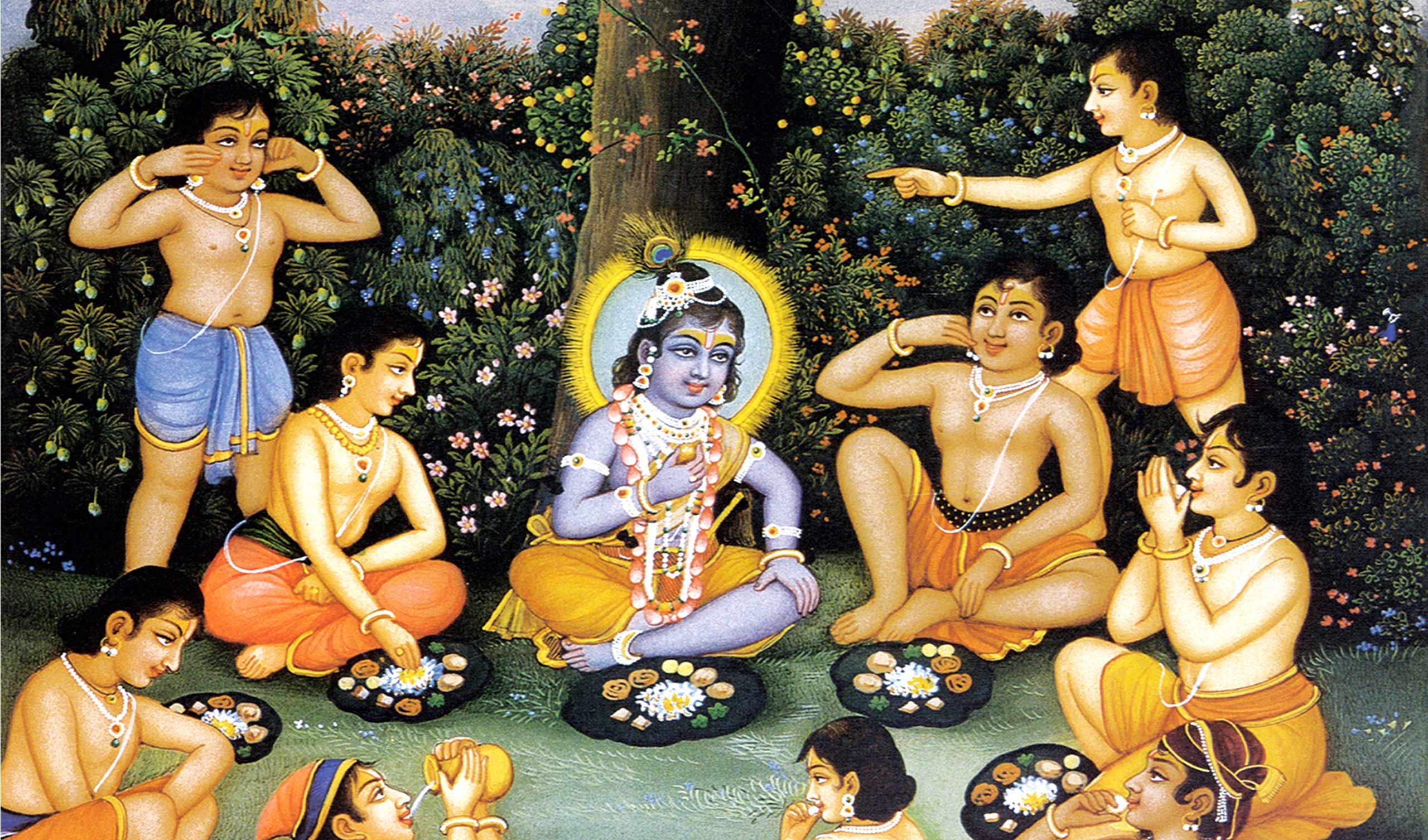Friday, March 29, 2024
The Curious Case of Krishna's Missing Ring:
Why should you offer food to God before eating?
The food is cooked with the consciousness that it is for the pleasure of God and not for the sole purpose of gratifying our taste buds.
In the Vedic tradition, many people make prayers and offer food to God before eating. The food is cooked with the consciousness that it is for the pleasure of God and not for the sole purpose of gratifying our taste buds. A portion of the food items is then put in a plate and a verbal or mental prayer is made for the Lord to come and eat it. After the offering, the food on the plate is considered prasād and is accepted as God’s grace.
Shree Krishna stated in the 13th Verse of Bhagavad Gita, Chapter 3:
The spiritually-minded, who eat food that is first offered in sacrifice, are released from all kinds of sin. Others, who cook food for their own enjoyment, verily eat only sin.
Other religious traditions follow similar customs. Christianity has the sacrament of the Eucharist, where bread and wine are consecrated and then partaken. It is simple, whatever we eat has to be first offered to God. Eating food offered to God changes our consciousness. It not only nourishes the body it also nourishes our soul.
The question may arise whether we can offer non-vegetarian items to God and then accept the remnants as his prasād. The answer to this question is that the Vedas prescribe a vegetarian diet for humans, which includes grains, pulses and beans, vegetables, fruits, dairy products, etc.
Apart from the Vedic culture, many spiritually evolved souls in the history of all cultures around the world also rejected a non-vegetarian diet that makes the stomach a graveyard for animals. Even though many of them were born in meat-eating families, they gravitated to a vegetarian lifestyle as they advanced on the path of spirituality.
According to Leonardo da Vinci:
Truly man is the king of beasts, for his brutality exceeds them. We live by the death of others. We are burial places! I have since an early age abjured the use of meat…
In fact, in the Bhagavad Gita Shree Krishna goes a step further and states that even vegetation contains life, and if we eat it for our own sense enjoyment, we get bound in the karmic reactions of destroying life. However, if we eat food as remnants of sacrifice offered to God, then the consciousness changes. We then look at our body as the property of God, which has been put under our care for his service. And we partake of permitted food, as his grace, with the intention that it will nourish the body.
We understand how food affects our body but we often overlook its impact on the mind. Vedas say, what we eat is what our body and mind are made of.
‘Who Am I’
Continuing our short series on ‘Who Am I’, let us now understand the characteristics of the soul. Scriptures talk about two types of characteristics; Svaroop and tatastha (marginal) characteristics. Svaroop means the natural characteristic of the soul. The soul is conscious; it is a power of God. At the same time, the Darshan Shastra as well as the Kenopanishad point out that the entity called ‘I’ is beyond the intellect, and as such, it cannot be understood by the intellect. The ‘I’ is beyond the grasp of the senses, the mind and the intellect since these are material and non-conscious.
Ved-Vyas says in Vishnu Puran that God has three main powers. The first is para shakti, the second is kshetrajna shakti (tatastha or marginal) and the third is called maya. Para shakti is God’s own personal power. It is also called as Svaroop shakti or Yogmaya shakti. God’s marginal power (tatashta) refers to the individual soul. God’s external power is called avidya, i.e. maya. What function does avidya perform? It creates the world. Maya includes God’s power ‘maya’ as well as the world. So, there are three powers – Yogmaya, Maya and the individual soul.
The individual soul is a fraction of God. It is the marginal power of God (tatastha shakti). What is the marginal characteristic of the soul? It is an eternal servant of God.
Lord Chaitanya Mahaprabhu says,
The soul’s true nature is God’s servitude
The Puranas, Shastras and God-realized saints say the same thing. The Vedas, the Shastras and the saints, say that there is a difference as well as a ‘non-difference’ between God and the individual soul. It is a very unique relationship indeed.
God is conscious, and so are we. From this point of view, we are equal to God. But there are differences between God and the individual soul. God is unlimited consciousness and we possess limited consciousness. In other words, God’s consciousness pervades everything, and our consciousness pervades only our own body. The soul pervades a small body; that of an ant, and it pervades a big body, that of an elephant. There is no body bigger than that. God is omnipresent; He is unlimited consciousness, and the individual soul is very small, very subtle.
How small is the soul? The very definition of the soul is that it is the smallest. Every Veda and Shastra says that the soul is so small that there is nothing smaller. Thus, God is unlimited consciousness and the soul is minute consciousness. This is a very big difference indeed. Let us look at the second difference. God is the controller; the individual soul is controlled.

